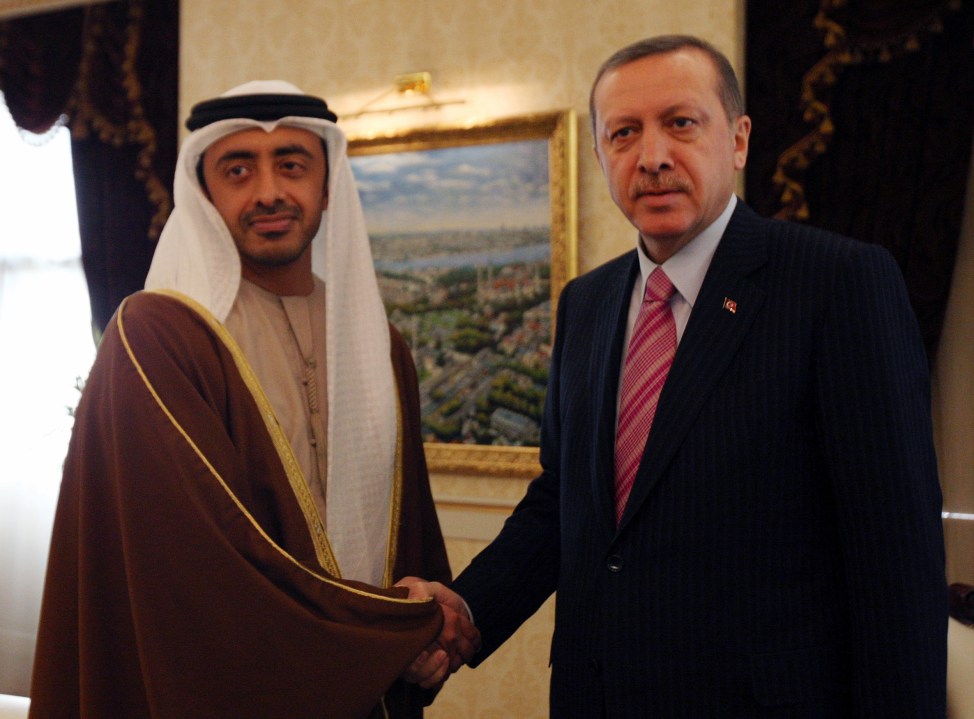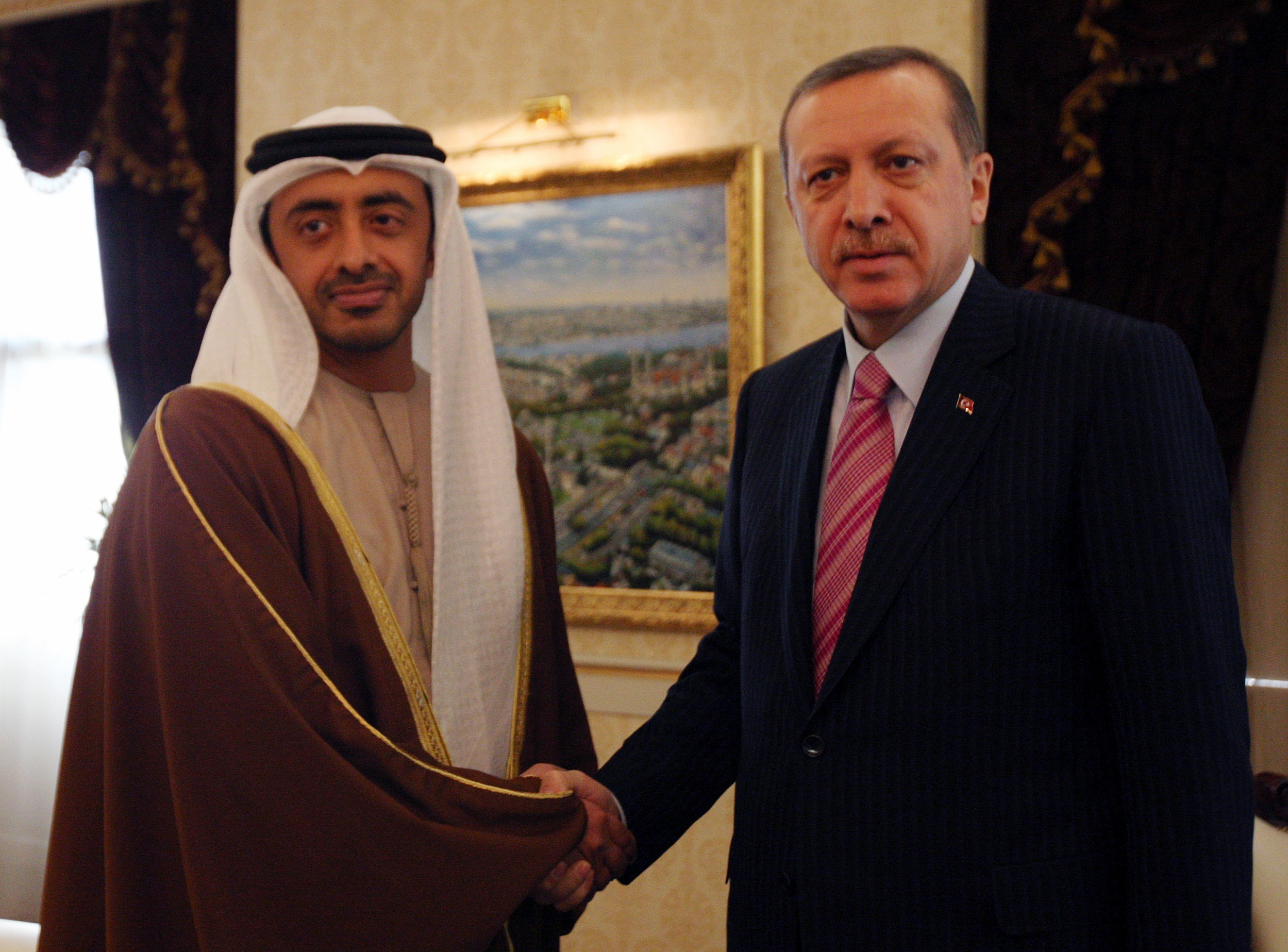Donald Trump is the most famous advocate of Twitter diplomacy but he is not the only high-profile politician to delight in using the site to wind up his enemies. In the Middle East, old opponents are also taking a leaf out of the Trump playbook.
The latest spat is between the United Arab Emirates and Turkey, with the latter taking offence at the Emirates’ foreign minister, Abdullah bin Zayed, who retweeted a message accusing Turkey of committing a war crime in 1916. The Turkish government responded by accusing him of spreading a ‘propaganda lie that seeks to turn Turks [and] Arabs against one another’.
Things did not stop here: the Mayor of Ankara added fuel to the fire by vowing to rename the street where the embassy of the United Arab Emirates is located after Fakhri Pasha, an Ottoman-era military commander, in a bid to further wind up the UAE. This all sounds petty and it is. But this diplomatic Twitter bust-up between Turkey and the UAE is part of a larger geopolitical struggle in the region in which Turkey is playing an increasingly provocative role.
When Saudi Arabia, the UAE, Bahrain and Egypt broke off relations with Qatar last summer, Turkey responded quickly by siding with Qatar. The two countries formed a strategic alliance, which has led to an upsurge in the number of Turkish troops sent to Doha. Since then, Turkish relations with Saudi Arabia have looked increasingly fraught. The two countries were once close allies. No longer. As Turkey edges closer to Iran, Saudi Arabia does the opposite. The two sides in this new Middle East clash are drifting further apart: when Turkish president Recep Tayyip Erdogan hosted the Organisation of the Islamic Cooperation in Istanbul last month, the Saudi King – as well as the leaders of the UAE and Egypt – did not show up.
In this bitter row, Bin Zayed’s retweet has only worsened relations, with Erdogan – never once to back down from a fight – ramping up the rhetoric. The Turkish president accused the UAE minister of being ‘spoiled with petrol and with money’. He went on to say: ‘While my ancestors were busy defending Medina, you impudent man, what were your ancestors doing?’.
Divisions in the Middle East are, of course, nothing new. But in this age of Twitter diplomacy, it seems that a provocative retweet is all it takes to further damage an already increasingly fraught relationship. The defeat of Isis has left a vacuum in the region which Ankara and Riyadh are determined to fill and both sides are eager to seize the upper hand. Saudi Arabia’s crown prince Mohammed Bin Salman and UAE crown prince Mohammed bin Zayed Al-Nahyan are seeking to roll back Iranian influence in Qatar and Yemen. The Twitter spats are symbolic of this larger conflict, putting Arab and Turkish history at odds. Turkey has also been nurturing relations with Moscow and Tehran in the last year. In 2018, the Western powers will have to increasingly choose which side to take. If history is a lesson, Riyadh and Abu-Dhabi beckon.







Comments